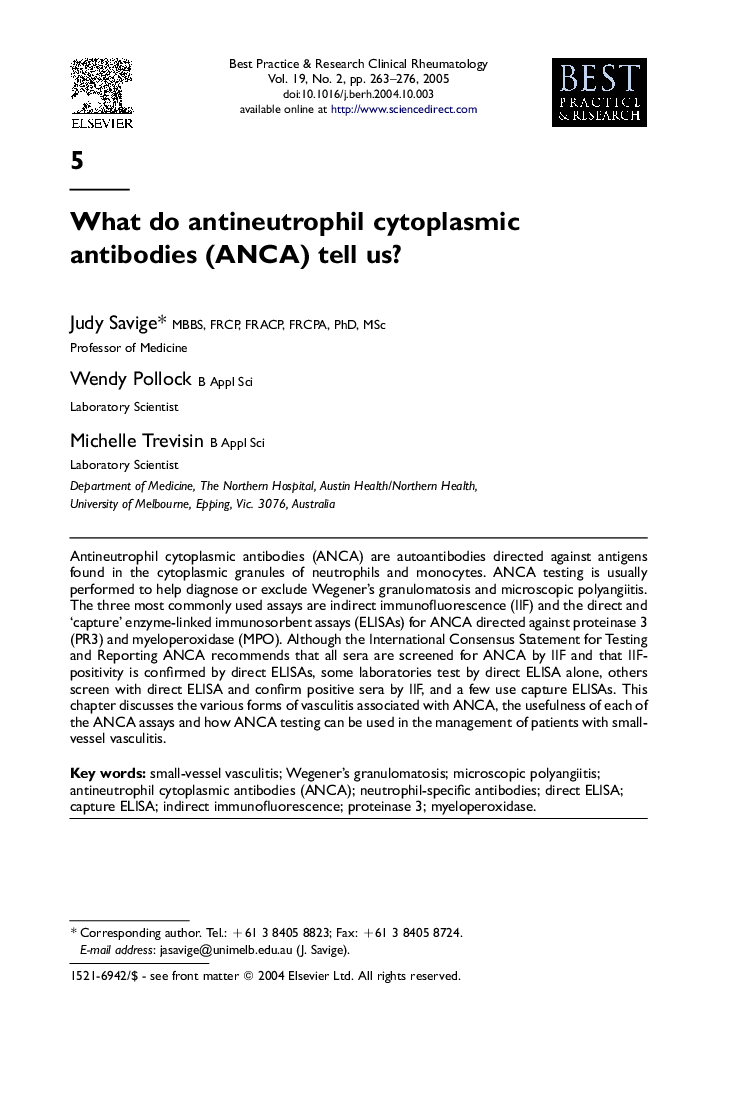| Article ID | Journal | Published Year | Pages | File Type |
|---|---|---|---|---|
| 9261925 | Best Practice & Research Clinical Rheumatology | 2005 | 14 Pages |
Abstract
Antineutrophil cytoplasmic antibodies (ANCA) are autoantibodies directed against antigens found in the cytoplasmic granules of neutrophils and monocytes. ANCA testing is usually performed to help diagnose or exclude Wegener's granulomatosis and microscopic polyangiitis. The three most commonly used assays are indirect immunofluorescence (IIF) and the direct and 'capture' enzyme-linked immunosorbent assays (ELISAs) for ANCA directed against proteinase 3 (PR3) and myeloperoxidase (MPO). Although the International Consensus Statement for Testing and Reporting ANCA recommends that all sera are screened for ANCA by IIF and that IIF-positivity is confirmed by direct ELISAs, some laboratories test by direct ELISA alone, others screen with direct ELISA and confirm positive sera by IIF, and a few use capture ELISAs. This chapter discusses the various forms of vasculitis associated with ANCA, the usefulness of each of the ANCA assays and how ANCA testing can be used in the management of patients with small-vessel vasculitis.
Keywords
Related Topics
Health Sciences
Medicine and Dentistry
Immunology, Allergology and Rheumatology
Authors
Judy (Professor of Medicine), Wendy (Laboratory Scientist), Michelle (Laboratory Scientist),
